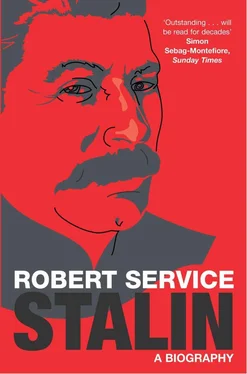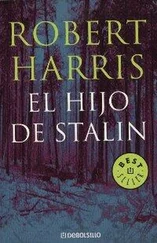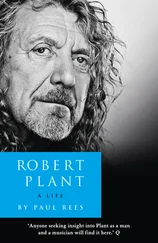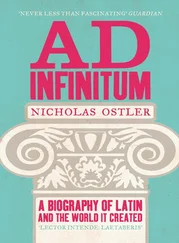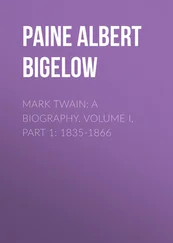McNeal, Robert
Mach, Ernst
Magnitogorsk
Maiski, Ivan
Makharadze, Pilipe
Malenkov, Georgi: opposes Great Terror; class background; association with Stalin; and Nazi-Soviet pact (1939); and conduct of war; wartime responsibilities; on counter-productive effect of repression; encourages light industry; at Cominform Conference; visits Stalin; and administrative reforms; status and appointments; regains favour; in Leningrad Affair; and Stalin’s 70th birthday celebrations; studies political economy; Stalin teases for corpulence; delivers Central Committee political report at Nineteenth Party Congress; Stalin suspects of conspiracy; heads permanent commission on foreign affairs; fears Stalin’s disfavour; Stalin entertains; and Stalin’s stroke; and succession to Stalin; at Stalin’s funeral; reforms after Stalin’s death; rivalry with Khrushchëv
Malinovski, Roman
Malkina, Yekaterina
Manchuria (Manchukuo): Japan occupies; Stalin orders invasion of; Soviet dominance of
Mandelshtam, Osip
Manstein, General Erich von
Manuilski, Dmitri
Mao Tse-tung
Marchlewski, Julian
Markizova, Gelya
Marr, Nikolai
Marshall, General George: European recovery plan
Martov, Yuli: in Russian Social Democratic Workers’ Party split; at 1905 Stockholm conference; at 1907 London conference; exiled to Turukhansk; Stalin charges with slander
Marx, Karl: Bogdanov on; on capitalist competitiveness; on global revolution; on end of capitalism; influence on Stalin
Marxism-Leninism: Stalin’s commitment to; in Georgia; appeal to intellectuals; predicts class war; and national question; in Finland; propagated; and foreign policy; reasserted in war; and dictatorship of proletariat; promoted
Masaryk, Jan
Maslov, Pëtr
Matsesta
Mayakovski, Vladimir
Mdivani, Budu
Medvedev, Roy
Meir, Golda
Mekhlis, Lev
Mendeleev, Dmitri
Mensheviks: ridicule Stalin; formed by Party split; in Georgia; differences with Bolsheviks; Lenin breaks with; excluded from Central Committee; and national question; support Provisional Government; Kamenev and Stalin attack; members transfer to Bolsheviks; and Democratic State Conference; control soviets; walk out from Second Congress of Soviets; Bolsheviks’ fear of rivalry; as potential opposition to Stalin
Menzhinski, Vladimir
Mercader, Ramón
Merkulov, V.N.
Merzhanov, Miron
Meyer, Ernst
Meyerkhold, Vsevolod
MGB (Ministry of State Security); see also NKVD
Mgeladze, Akaki
Michels, Roberto
Mikhail, Grand Duke
Mikhalkov, Sergei
Mikhoels, Solomon
Mikolajczyk, Stanislaw
Mikoyan, Anastas: dacha; Stalin’s assessment of; and grain procurement; in Politburo; relations with Stalin; Armenian origins; writes memoirs; and Stalin’s admiration for Hitler; and Nazi-Soviet pact (1939); in conduct of war; on Stalin’s treatment of Molotov; on Stalin’s timorousness in war; responsibilities for food in war; telephones bugged; status and power; Stalin’s hostility to; and Stalin’s hostility to Voznesenski; proposes list of successors to Stalin; demoted and out of favour
Mikoyan, Ashken (Anastas’s wife)
Milyukov, Pavel
Milyutin, Vladimir
Mingrelians,
Minin, Sergei,
Mnatobi (newspaper)
Mogren (Swedish Police Commissioner)
Molochnikov, Nikolai
Molotov, Vyacheslav: snubs Stalin on return from exile; removed from Russian Bureau; Stalin moves in with; position in Party Secretariat; quarrel with Trotski; Lenin proposes promoting; omitted from Lenin’s Testament; at Lenin’s funeral; supports Stalin in Orgburo; and Stalin’s experience with beggar; recreations; and Stalin’s view of Krupskaya; Stalin complains of Bukharin to; and Stalin’s industrialisation policy; shares Stalin’s assumptions; and Stalin’s demand for export of grain; in Politburo; Stalin devolves power to; and Stalin’s mistrust of colleagues; as Stalin’s confidant; Stalin complains to about Rykov; and growth of state power; approves Nadya Allilueva’s travel abroad; attempts to understand Stalin; argues for industrial slow-down; accompanies Stalin family on Metro ride; Stalin’s correspondence with; writes memoirs; shares Stalin’s class attitudes; on Stalin’s fears of ‘fifth column’; and Yezhov’s appointment to NKVD; argues with Pyatnitski; participates in Great Terror; Stalin asks to prevent publication of articles; and Yezhov’s decline; class background; disagreements with Stalin; wife arrested; in People’s Commissariat of External Affairs; signs 1939 nonaggression pact with Germany; and Stalin’s view of Hitler; and Baltic States; on Stalin’s war preparations; attempts to delay war with Germany; at German invasion of USSR; on Stalin’s reaction to German invasion; in wartime Stavka; supports Stalin in conduct of war; musical abilities; social life with Stalin5; Stalin’s treatment of; responsibility for tanks in war; in Berlin (1940); entertains Churchill in Moscow; and German-Polish border; demands continuing offensive; and post-war Soviet influence in world; negotiates Soviet role in UN; readiness to accept Marshall Aid; in antiTito campaign; and exploitation of eastern Europe; singing with Stalin; loyalty to Stalin; Stalin humiliates; self-control; telephones bugged; demoted and out of favour; and withering away of state; rejects socialism in one country doctrine; and succession to Stalin; wine-drinking; position after Stalin’s death; eulogy at Stalin’s funeral; approves reforms after Stalin’s death
Molotova, Polina (Zhemchuzhina)
Monastyrskoe, Turukhansk District
Montgomery, General Bernard Law ( later 1st Viscount)
Morozov, Grigori: marriage to Svetlana
Morris, William
Moscow: Soviet government transfers to from Petrograd; wartime defence of; victory parade (1945)
Moscow Metro: Stalin rides on with family
Moscow Revolutionary Tribunal
Moshentseva, Dr P.
Mother Tongue (Georgian anthology)
Murakhovski, A.A.
Muranov, Matvei
Murmansk
Musavatists
Mussolini, Benito,
MVD (Ministry of Internal Affairs)
Nagasaki
Nagy, Ferenc
Nakhaev, General A.S.
Nalchik
Napoleon I (Bonaparte), Emperor of the French
Narym: Stalin exiled to
national question: Stalin on; and Stalin’s commissarship; Party policy on; and autonomous republics
Nazaretyan, Amakyan
Nazism: Stalin’s attitude to rise of; see also Germany; Hitler, Adolf
Nenni, Pietro
Neumann, Franz
New Economic Policy (NEP): introduced (1921); Trotski’s reservations on; and Stalin’s socialism; Bukharin supports; Stalin destroys; achievements
Nicholas II, Tsar: war with Japan; issues October Manifesto (1905); and composition of Duma; in First World War; disperses Duma (February 1917); abdicates; behaviour; coronation
Nietzsche, Friedrich
Nikolaev, Leonid
NKVD (People’s Commissariat of Internal Affairs): expanded; OGPU incorporated in; arrests; purges Leningrad; and Constitution (1936); Yezhov heads0; and forced labour; in Great Terror; reports on public opinion; Beria replaces Yezhov as head; liquidates Spanish Trotskyists; purges Polish Communist Party exiles; and foreign communist activities; operations in Poland; in Baltic States; scorched-earth policy; in wartime Leningrad; repressions in wartime; post-war activities and records; see also GPU; MGB; OGPU
Nogin, Viktor
Nomonhan
Normandy invasion (1944)
North Africa: German successes in
North Atlantic Treaty Organisation (NATO)
Novaya Uda, Irkutsk Province
Novaya zhizn (newspaper)
nuclear weapons see atomic bomb
Nutsubidze, Shalva,
October Manifesto (1905)
Читать дальше
